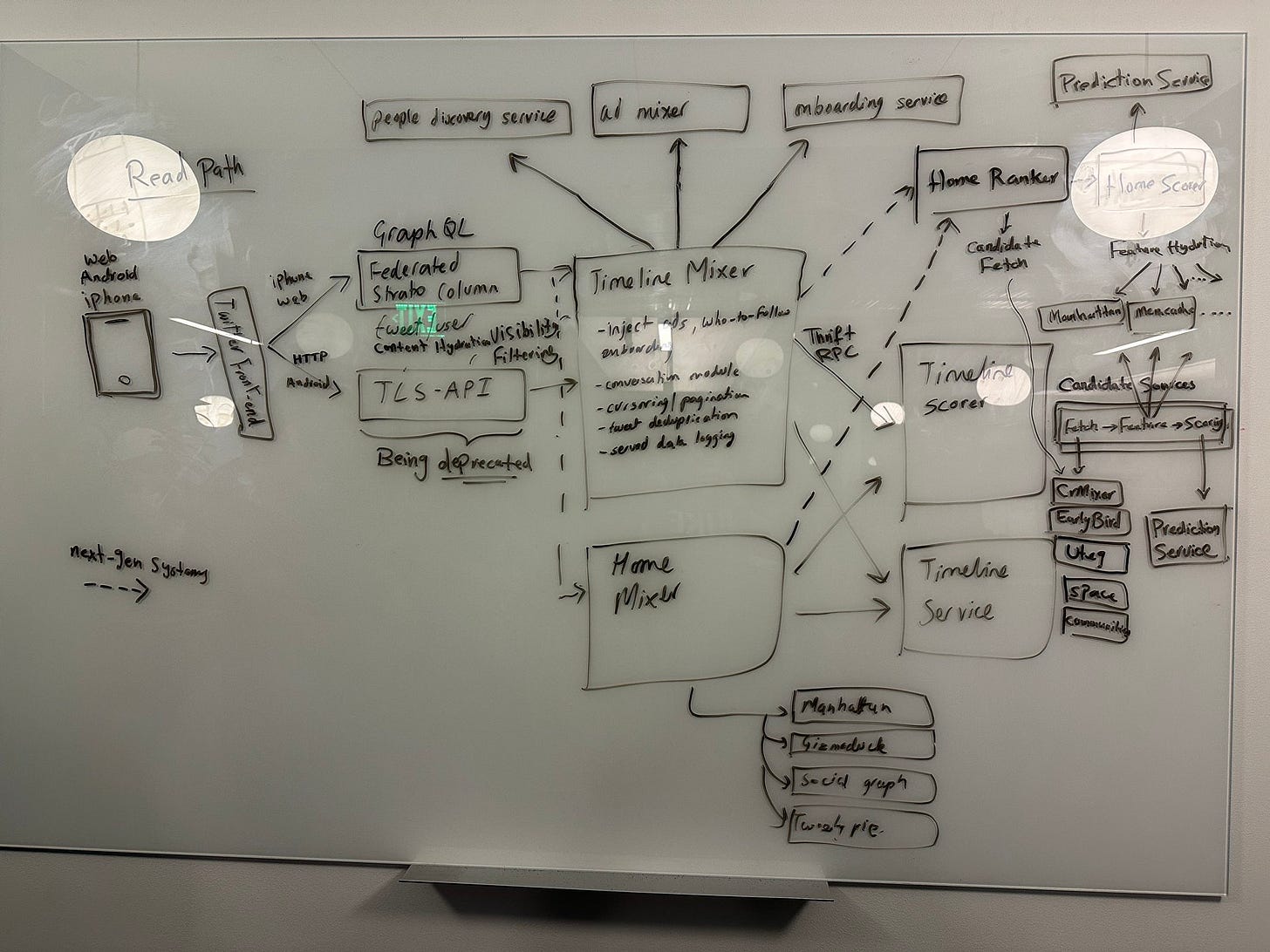Spice Girl Control
[Fragile Fidesz: Techno-Managerial Class 1/3] A critical vulnerability that reactionary forces from the Right face regarding institutional capture and hold. First: Twitter and technocrats.
I’m from an Eastern European, industrial working class, Socialist town. With Musk’s takeover of Twitter, the final straw being restoring Trump’s profile, all the true Socialists I know back home are calling for a boycott of Tesla.
If you take look at the Hungarian Post-Socialist Power Cheat Sheet, you’ll see that in the Fidesz Hegemony era (post 2010) I gave them a tiny, orange “r” in the Soft Power column. That’s an overstatement.
Don’t miss the warmup to this post: Fragile Fidesz: A Spooky Hypothetical (Techno-Managerial Class Intro)
The highlights from the post you’re about to read are listed in this Twitter thread.
Brute force institutional capture
Fidesz struggles to increase its presence on many fronts, mostly Arts, as it’s the most visibly Left-adjacent Soft Power sector.
Whether their methods and results prove to be fruitful, useless or even counter-productive is debatable. More often than not, Fidesz makes a desert and calls it capture.
A recent and ongoing example is the battle over the University of Theatre and Film Arts Budapest (SZFE), which was taken over by the Right through Hard Power. Here’s a recent (realtalk) quote from the director of the foundation that manages the university, I let you judge the approach for yourself:
For some time now, I have seen exactly how the SZFE was designed to be the central base of the system that the Liberals have built for themselves. It’s a training facility for them, just look at the participants in political protests, where the theatre and film professions are at the forefront. They are hysterical because we have captured one of their last bases (...) Those who come out of here [under the new leadership] will represent a different tone and a different backbone (...) Re-tuning students is not an easy thing."
— SZFE students distance themselves from Vidnyánszky in an open letter
Well, we’ll see, Attila.

His ascendance was met by protests, strikes, cancellations (old school kind), and the rest. With him, Fidesz really kicked the hornet’s nest. Which side will prevail? I have no idea. His approach, Fidesz’s approach feels a bit too blunt, more likely to achieve destruction rather than assimilation, but I don’t know much about theatre, I can be wrong.
I do know about tech though. In tech, the story from the outside is similar, and the inside story to me, unlike in Arts, is familiar.
As Elon’s purchase of Twitter demonstrates, institutional (re)capture is no easy task.
The birth of the techno-managerial class
In this series I’ll focus on the “techno-managerial class”, which is a subset of managerial class outlined by many starting with Burnham (1941). This class is present in both the public and private sector, and just like the managerial class, it falls outside democratic oversight. If they’re sufficiently politicized, traditional models based on self-interest doesn’t apply to them (a bit like how “woke capitalism” makes no sense if you expect a company’s motive to sell the most amount of razors).
Yet they’re not entirely devoid of self-interest, these are little people after all, they know who to truly be afraid of, who holds the real power. They tend to make political sacrifices for causes that are by and large approved by the dominant Soft Power forces; they can proudly display their activism in their Twitter bio or on their LinkedIn with no repercussion, a bit like The Teacher’s Pets Rebels.
When tech people felt they had a green light to do unethical things, actions that otherwise would compromise their careers but would be forgiven by the greater industry, Musk had to act swiftly to prevent them screwing things up: accesses were revoked and many were locked out as a preventive measure.
The techno-managerial class is indisposable. Near-indisposable. The hardest to replace after a takeover, the very last ones to be fired, unless the upper management / human resources is suicidally clueless about the product’s actual needs. Your bottom tier programmer is a manager, even if his title says otherwise: he’s managing code, he’s a crucial cog in the infrastructure, and the longer he’s been at it, the more he himself became an irreplaceable part of the day-to-day institutional knowledge required to keep things running, to avoid a white screen of death on the users’ end the next morning.
Every programmer in a project is incentivized to make themselves indisposable, we’re talking about smarter than average people here, even the dumbest ones understand self-interest, so unless you had good mid-management (CTO-level) making sure that every single one does a job that’s well-documented and universally understandable, they will to their best (and to the product, the owner, and any future owner, the worst) to stay irreplaceable. Only the very best, most vigilant CTOs can keep a product from degenerating into a mess of entrenched gurus.
In the CTOs’ case (techies themselves), the incentive to do this extra management hassle must be recognized and honored by higher management, constantly, otherwise the CTOs also stop giving a shit, and the product will veer off the path of sustainability. This degeneration can go very quiet for a very long time, until a badly handled personnel problem among the techies makes years of product mismanagement garbage surface that will be undeniable to everyone. Since only the best possible alignment of stars would result in a tech product where the techies are easily interchangeable, a new, entrenched and entitled management class is born: the techno-managerial class.
You don’t believe that they are more powerful than the average wage slave that they share an accounting spreadsheet with? Ever heard about programmers unionizing? Why should they? The whole world, including the upper management always treated them as weirdo monks, so they shrugged and turned their field into a monastery, long ago. Monks don’t need a union, that would be a downgrade.
Every institution that relies on tech people will have its own monastery that you need to deal with, if you were to take it over.
Conquering the Monastery of Twitter
There were and are a lot of rumors on how Musk is handling the takeover. Thousands were fired, which is the least interesting part, most of them weren’t essential, they did not belong to the techno-managerial class, making them either easy to replace, or just simply redundant.

 Tiktok failed to load.
Tiktok failed to load.Enable 3rd party cookies or use another browser
This is “a day in the life of a Twitter employee.” No wonder @elonmusk is firing 75% of them - TikTok
The most interesting part of the story centered on techies leaving, conspiring in company chat rooms and having to be locked out of the system before they can do any harm. This lead to rumors like this one:
Elon Musk brought in a group of his SpaceX software engineers the first day he took over the company.
Fact check: probably false. Wishful thinking by civilian fans. It kind of sounds plausible, but this is not exactly how software is made. SpaceX’s primary goal doesn’t involve running some cloud crap that has to scale globally.
It’s like Google buying a game studio and replacing the core developers with Google people: highly improbable. Google has great engineers, but their profile is not game development, it’s not even general client-side application development. Tech experts are very smart and very adaptable people, but this level of instant interchangeability is beyond even them; to outsiders, cheering Elon on, it’s believable; but they also believe that you kill a computer by shooting the monitor.
An added difficulty of doing a human resource swap like the one above is the replacement team’s lack of institutional knowledge; the larger the infrastructure, the less likely it can be pulled off without a hitch. As I noted above, if development has been mismanaged for while, you just bought a minefield that only the veterans can navigate, and Elon, even during his acquisition attempts, hinted at Twitter’s infrastructure being in disarray. This could have been a bargaining move, and after he acquired the company, a motivational one, in either case it fuelled speculations on what the company spent a billion dollars every year as research and development.
What we do know is that he showed at 1:00 am up to reassure the remaining devs that staying loyal to him (and the product) worths it.
He wants to gain support among the truly essential workers of an internet company, those who belong to the techno-managerial class. He can fire HR, marketing, trust and safety and all the diversity officers, Arts-adjacent middle managers, Twitter would continue to work perfectly fine as a web service: it’s the techno-managerial class that no modern internet product can do without.
Apparently they discussed the system’s architecture:
He also insists on getting weekly reports from teams, which is way below his station, and regularly posts techie updates on Twitter’s development, hinting at a reassuring, fellow tradesman kind of micromanagement which is unusual for his corporate caste — which is the very highest one imaginable.
The closest example that comes to mind are 1990s rumors about Bill Gates randomly popping up in obscure code reviews all over Microsoft, and responding to hundreds of emails a day.
Joel Spolsky provides his own anecdote of Bill from 1991:
On June 17, 1991, I started working for Microsoft on the Excel team. My title was “Program Manager.” I was supposed to come up with a solution to this problem.
I sat down to write the Excel Basic spec, a huge document that grew to hundreds of pages. I think it was 500 pages by the time it was done.
In those days we used to have these things called BillG reviews. Basically every major important feature got reviewed by Bill Gates. I was told to send a copy of my spec to his office in preparation for the review. It was basically one ream of laser-printed paper.
[…]
I noticed that there were comments in the margins of my spec. He had read the first page!… and THERE WERE NOTES IN ALL THE MARGINS. ON EVERY PAGE OF THE SPEC. HE HAD READ THE WHOLE GODDAMNED THING AND WRITTEN NOTES IN THE MARGINS.
[…]
He didn’t meddle in software if he trusted the people who were working on it, but you couldn’t bullshit him for a minute because he was a programmer. A real, actual, programmer.
Watching non-programmers trying to run software companies is like watching someone who doesn’t know how to surf trying to surf.
Elon is willing and able to go hands on to assure that his takeover is successful, his new property won’t implode due to internal dissent from the techno-managerial class.
But even he can’t do it alone.
How easy it is for Elon “Tesla/SpaceX/Starlink” Musk (resident of Silicon Valley) to find five star tech talent who can help him lead his battles?
So far only two prominent names are rumored: a notorious PS3 hacker with a big mouth and an encryption guru who openly holds radical Left wing opinions.
That’s the menu Musk can choose his generals from to oversee his takeover. Tech talent that’s willing to aid you when you’re trying to piss the Hegemonic Liberal Glacier in half is hard to come by. The loyalty of those who do show up is to be tested; they will be under a lot of pressure, an unprecedented amount of pressure both personally and historically, incentivized and threatened to stab you in the back, rage quit and disavow you when the going gets though.
Side note: the absolutist twitterati having to move onto Mastodon, a distributed platform, is a heartwarming slap in the face of utopianist federalists (the overlap on European Twitter between the two groups is huge).
They bitch about janitors going wild on these servers, true believers™ perishing to friendly fire. Having these lunatics exist at the mercy of the petty tyrants of their own making is an additional delight to my inner chaotic neutral side.
Although, this inconvenience may further reinforce their belief that only One System should remain, only that can achieve the universal ordnung that would put their minds at ease. Their kind in absolute control of it, of course.
Can these people be cured? One must never give up hope. #LOVESPEECH
Does Fidesz have its own, Hungary-proportioned Elon Musks, specializing in certain fields? (The answer is a surprising kind of, in some areas, ending in a major but. More about this later, behind the paywall 😎)
Does Fidesz, as it tries to convert Hard Power to Soft, capturing institutions one after another, have the ability to transform them into one that’s loyal to the Right, or all they can achieve is to get the ownership on paper and watch helplessly as the property (brand) burns down?
For now, it seems like the latter is more likely. It’s a major fragility of Fidesz, and Conservatives around the globe in general.
Teach leans Left
Tech leans Left. Why? That investigation could fill a Big Sunday Post.
Sometimes your anecdotal evidence is so overwhelming that looking for the cause is an irrelevant post mortem. In my experience, I’ve never met anyone in tech who was Center-Right or Conservative. Extremists? Sure, both Left and Right. Mainstream Left? By default, all of them.
Maybe Liberalism’s (both old and new) popularity among them is related to the broader Left’s tolerance, acceptance and celebration of antisocial behavior.
Popular culture in the 2010s also targeted their specific kinks and hobbies. To undersocialized people, parasocial relationships with products can become the essence of defining their personal and group identity. Whoever tries to prevent me from watching Funny Nerd Family season 9 is literally out to kill me. You’d be shocked to discover how messed up the priorities of emotionally atypical individuals can be (don’t look).
This is a Christian server! — remember the ancient meme. Mixing Conservatism and tech is an old joke, it’s like oil and water. On this Substack it’s not a joke though, no swearing when you
So tech leans Left, and it will continue to do so, no change in sight. It was never really a question, otherwise 90s fiction would have treated the oncoming Information Age in a more dystopian manner. When it did, the imagined horror wasn’t Digital Fundamental Christians programming creationism into kids brains. Conservatives didn’t lose any battle; they refused to show up, from the start.
Maybe that’s the short answer: tech leans Left, because had it ever tried to lean Right, it would have fallen on its face. Keep this in mind for Part 3!
A government of lawyers
Whatever Fidesz manages to capture, on paper, more often than not turns to dust. When it doesn’t, the end result is stagnating and creaky.
Fidesz is a party made up of lawyers. Fidesz governments have long been called — pejoratively — as governments of lawyers. So they’re no dummies, per se, but their talents’ dynamic range is very constrained.
Years ago I promised myself that I will never give political advice for free. Now Substack allows me to make good on this promise. There’s way too much money, even in Hungarian politics, and I gave away way too many memes for free. I love it when they show up here and there, in both social and traditional media, but enough is enough.
Giving away stuff somehow earns you less respect than charging for it: people happily take free stuff, but instead of gratitude, their subconscious tells them that you’re a sucker, so they won’t even credit you afterwards. This ends, here.
It’s an exercise in mutual respect, and a cheap one at that.
It’s worth a peak, I’ll truly be letting the juices flow behind the paywall👌🏻💦:







